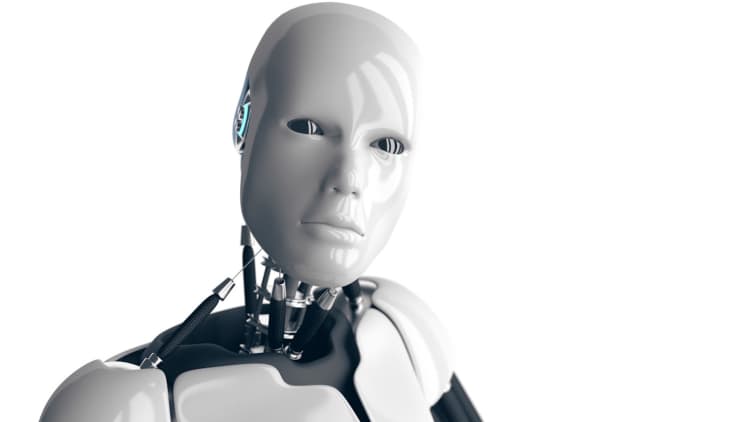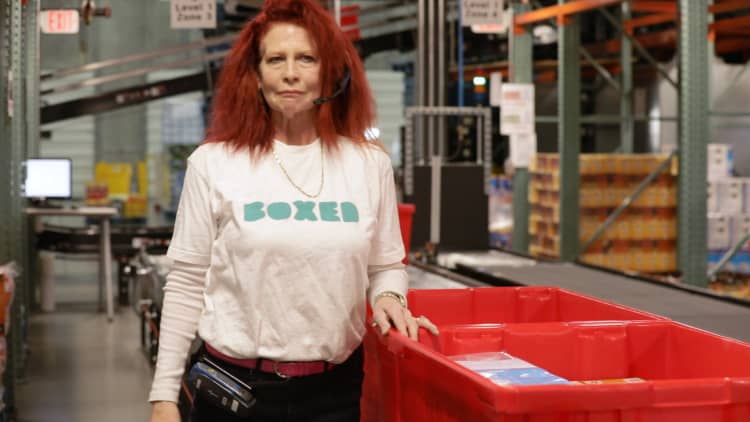Billionaire hedge fund founder Ray Dalio says artificial intelligence and automation are improving productivity but also causing such a dramatic wealth gap that “a national emergency should be declared."
The co-chief investment officer and co-chairman of Bridgewater Associates shared his thoughts in a Facebook post on Thursday.
Dalio says he was responding to a question about whether machine intelligence would put enough people out of work that the government will have to pay people to live with a cash handout, a concept known as universal basic income.
“My view is that algorithmic/automated decision making is a two edged sword that is improving total productivity but is also eliminating jobs, leading to big wealth and opportunity gaps and populism, and creating a national emergency.
"Largely as a result of it, capitalism is not working for the majority of Americans and is in jeopardy," he writes. "Yet no one is seriously examining what to do about it.”
Indeed, income inequality is real. The global charity Oxfam found that 82 percent of the growth in global wealth in the previous year went to the top 1 percent of individuals ranked by riches, according to a report published in January. Meanwhile, the bottom 50 percent had no increase in their wealth, the report says.
Billionaire serial entrepreneur Richard Branson told the New York Times in June that a universal basic income is an appropriate response to income inequality.
“A basic income should be introduced in Europe and in America,” Branson told David Gelles of the Times. “It’s a disgrace to see people sleeping on the streets with this material wealth all around them."
In particular, Branson said the acceleration of machine intelligence is driving the need of cash payments. “I think with artificial intelligence coming along, there needs to be a basic income,” said Branson.
“I think AI will result in there being less hours in the day that people are going to need to work,” Branson said. “You know, three-day workweeks and four-day weekends. Then we’re going to need companies trying to entertain people during those four days, and help people make sure that they’re paid a decent amount of money for much shorter work time.”
Other billionaires like Mark Zuckerberg and Elon Musk have also promoted UBI. And Facebook co-founder Chris Hughes suggested pulling back tax cuts on corporations and the top 1 percent to give $500 tax credit to every American who is currently making less than $50,000 a year.
But a cash handout should be a last resort, according to Dalio.
“I don’t believe that transferring money to people who are unproductive is good for the people or the economy, unless there are no other good alternatives. I believe that it’s both far better and it’s possible to find ways for making most of these people productive,” says Dalio.
Retraining workers to thrive in the new economy should be a top priority for the country, the financier and entrepreneur says.
“I think that a national emergency should be declared, a special commission created, and metrics established to come up with programs and measurements to make work improvements that more than pay for themselves and measure the changes that are taking place,” Dalio says. “I know of many cost effective ways that improvements that pay for themselves can be made and I’m sure that many others know of many more ways.” (Dalio did not expound on what those work improvement policies would or should be.)

Dalio, who is currently worth more than $17 billion according to Forbes, is not optimistic that the skills gap will be suitably addressed.
“Productivity is good for everyone. Unfortunately, it’s not available to everyone. That has to change. We need leadership that can bring that about. Unfortunately, it is more likely that nothing along these lines will be done and, in the next economic downturn, the haves and have nots will be at each other’s throats, fighting over income redistributions rather than working together to make plans to make most people productive,” he writes. “For that reason, I’m worried about the health of capitalism and democracy.”
See also:

Like this story? Subscribe to CNBC Make It on YouTube!


